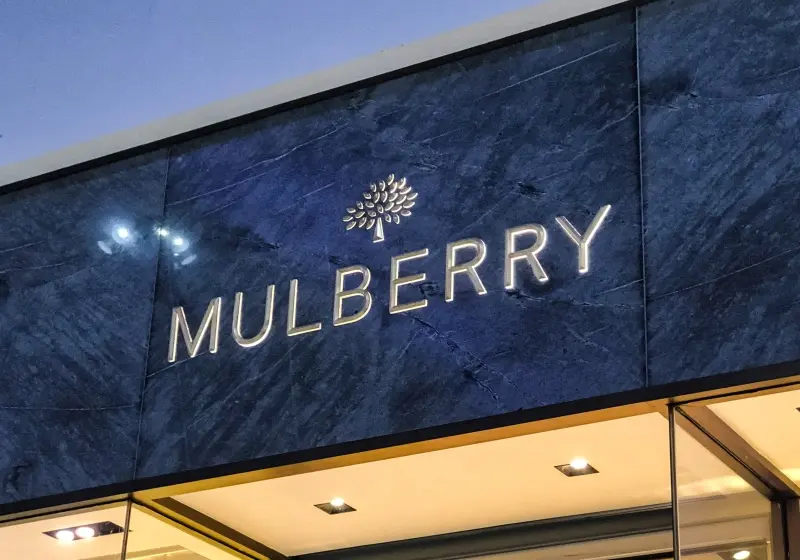In a significant development within the luxury fashion sector, Mulberry, the iconic British heritage brand, has firmly rejected an £83 million takeover bid from retail magnate Mike Ashley’s Frasers Group. The proposal, which sought to acquire Mulberry in its entirety, has sent ripples through the fashion and retail industry, igniting discussions on the future of British luxury brands, corporate acquisitions, and the strategic vision of both Mulberry and Frasers Group.
This article explores the details surrounding the rejected offer, the motivations behind the bid, and the potential implications for both companies as the fashion retail landscape continues to evolve.
The Offer: Frasers Group’s £83 Million Bid
Frasers Group, led by billionaire Mike Ashley, is a conglomerate that owns various retail businesses, including Sports Direct, House of Fraser, and Flannels, making it a powerhouse in the retail world. The group’s move to acquire Mulberry, known for its high-end leather goods, marked an aggressive step towards further solidifying its presence in the luxury fashion market. Frasers Group already owns a substantial 37% stake in Mulberry, which it has been gradually increasing since 2020.
The £83 million bid was aimed at purchasing the remaining shares, which are predominantly owned by Challice Limited, a company controlled by Mulberry’s largest shareholder, Ong Beng Seng, and his wife, Christina Ong. With the Frasers Group’s desire to gain full control, this takeover attempt was seen as a strategic effort to expand its foothold in the luxury goods sector.
Mulberry’s Response: A Firm Rejection
Mulberry’s board responded swiftly, rejecting the takeover proposal from Frasers Group, stating that the offer “undervalued the company.” The board believes that Mulberry, as a heritage brand with over five decades of history, holds intrinsic value that goes beyond the monetary sum offered by Frasers Group. The rejection indicates Mulberry’s confidence in its current business strategy and long-term vision, which focuses on maintaining its position as a leader in the British luxury market while expanding its global reach.
Mulberry’s board argued that the proposed offer does not adequately reflect the company’s strong brand identity, loyal customer base, and future growth potential, particularly in the Asian markets where demand for luxury British goods is surging. Additionally, Mulberry has made strides in sustainability, committing to producing 100% sustainable leather goods by 2030, an initiative that it believes strengthens its long-term appeal.
Why Frasers Group is Interested in Mulberry
The interest of Mike Ashley and Frasers Group in Mulberry aligns with the group’s broader strategy of shifting toward luxury and premium brands. In recent years, Frasers Group has sought to reposition itself as a leader in the higher-end fashion sector, acquiring a string of luxury businesses such as Jack Wills, Flannels, and acquiring stakes in Hugo Boss.
Mulberry represents an opportunity for Frasers Group to further diversify its portfolio. With a strong brand reputation and an international presence, Mulberry’s integration into Frasers’ existing infrastructure would allow Ashley’s group to leverage its resources and expertise to boost Mulberry’s global sales. Additionally, owning Mulberry outright would give Frasers Group greater control over the brand’s future, providing a platform to further develop its luxury credentials.
Frasers Group has been open about its ambitions to dominate the high-end retail space. The company’s increasing investment in Mulberry over the past three years signaled its long-term interest, and this bid represents the culmination of that strategy.
The Strategic Importance of Mulberry’s Independence
Mulberry’s decision to reject the takeover bid highlights its commitment to remaining independent. The company has faced several challenges over the past few years, including the impact of Brexit, the COVID-19 pandemic, and rising costs associated with luxury production. Despite these obstacles, Mulberry has shown resilience and adaptability, focusing on building a direct-to-consumer model, growing its online presence, and expanding into Asian markets.
Mulberry’s rejection of the bid suggests that it views its future as being best served through independence rather than being absorbed into a larger conglomerate. The company’s leadership believes that maintaining its autonomy will allow it to continue pursuing its long-term strategies, including expanding its digital capabilities, enhancing its sustainability initiatives, and investing in its core product lines.
Additionally, Mulberry’s commitment to craftsmanship and British-made products is a central aspect of its brand identity. The company’s Somerset-based factories are pivotal to its heritage and reputation. Any takeover by a larger entity such as Frasers Group might dilute this identity, which could alienate the brand’s loyal customers. By rejecting the offer, Mulberry is sending a clear message that it intends to protect its legacy and values.
Industry Reactions: Divided Opinions
The news of Mulberry’s rejection has sparked a wave of reactions from industry analysts, shareholders, and fashion insiders. Some believe that Frasers Group’s bid, while rejected, signals a growing trend of consolidation in the luxury market, as larger retail groups seek to acquire established brands to broaden their portfolios and appeal to a more affluent customer base.
Industry experts have pointed out that Mulberry’s decision to turn down the bid could be seen as a risk, given the volatile nature of the luxury market and the economic uncertainties facing retail businesses in the UK. The growing trend of online shopping, coupled with inflation and rising production costs, has put pressure on traditional brick-and-mortar luxury brands. Some analysts argue that joining forces with a larger entity like Frasers Group could provide Mulberry with the financial stability and resources needed to weather these challenges.
On the other hand, supporters of Mulberry’s decision argue that the brand’s long-term value and independence are worth protecting. They emphasize that Mulberry’s focus on sustainability, craftsmanship, and expanding its presence in lucrative markets like China positions the company for future success without the need for a takeover. Furthermore, Mulberry’s loyal customer base, built on its reputation for quality and British heritage, is seen as a unique asset that could be compromised under different ownership.
What’s Next for Mulberry and Frasers Group?
The rejection of the takeover bid does not necessarily spell the end of Frasers Group’s interest in Mulberry. With Frasers already holding a 37% stake in the company, it remains a significant shareholder and will continue to have influence over the company’s direction. It is possible that Frasers Group could return with an improved offer in the future, especially if Mulberry’s financial performance weakens or if market conditions change.
For now, Mulberry will continue to focus on its existing strategy, which includes expanding its global retail presence, particularly in Asia, where demand for British luxury goods is strong. Mulberry’s commitment to sustainability will also remain a cornerstone of its brand, as it aims to appeal to environmentally conscious consumers.
For Frasers Group, the rejection represents a temporary setback in its pursuit of luxury dominance. However, the group is likely to continue its efforts to expand its portfolio of premium brands, either through increasing its stake in Mulberry or by targeting other acquisitions in the luxury sector.
The Broader Context: Consolidation in the Luxury Market
Mulberry’s rejection of Frasers Group’s bid comes amid a broader trend of consolidation in the luxury market. Large retail conglomerates like Frasers Group are increasingly looking to acquire established luxury brands to diversify their offerings and appeal to a more affluent clientele. This trend has been driven by several factors, including the growing importance of online sales, the rise of experiential retail, and the demand for premium products among younger consumers.
In recent years, luxury brands have become prime targets for acquisitions due to their high margins, strong customer loyalty, and global appeal. As a result, the lines between high street and luxury retail are becoming increasingly blurred, with companies like Frasers Group leading the charge in merging the two sectors.
The rejection of the bid highlights the delicate balance that luxury brands must strike between maintaining their independence and heritage, while also navigating the financial pressures and market demands of the modern retail landscape.
In a rapidly changing retail environment, the question remains: Will Mulberry’s decision to remain independent pay off, or will it ultimately need the support of a larger conglomerate to thrive in the competitive luxury market? Only time will tell.





